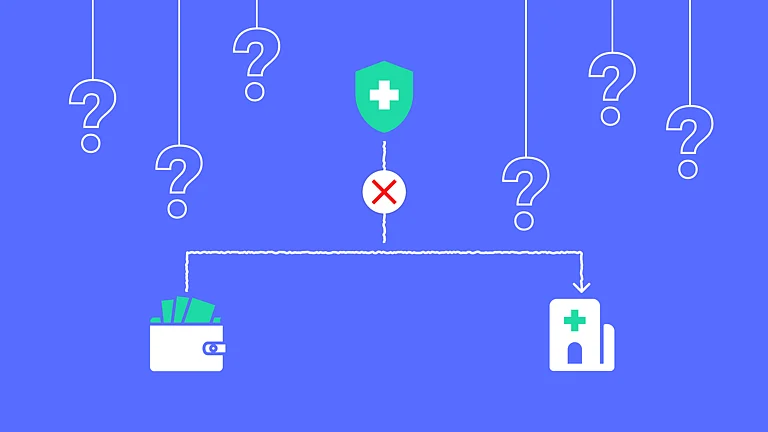Person X, aged 31, was in good shape with a well-paying job but without any health insurance in his folio. When a friend suggested he get a personal or family health insurance policy, he shrugged it off saying, ‘I am too young to worry about all that.” A year later, X was diagnosed with early-stage Type 2 diabetes and borderline hypertension during a routine health check-up. That’s when he finally decided to apply for personal health coverage. But he was shocked to find that insurers were either charging him significantly higher premiums, offering limited coverage, or outright rejecting his application.
Don’t Wait To Fall Sick: Why Buying Health Insurance Early Is Better?
“Leading causes of hospitalisation, such as fever and accidents, are age-neutral. Buying health insurance is not dependent on age, it is about protecting oneself and one's family from devastating health expenses, which can occur to anyone, at any age,” says Pankaj Nawani, CEO of CarePal Secure
At this point, he had missed the window of being a “low-risk” customer. And now, the cost of that delay was going to have a direct implication, not just on his health, but his financial well-being as well.
When waiting to buy Health Insurance is a risk you can’t afford
Many people, like person X, might believe that health insurance is something to think about later in life. But by the time they feel the need to get one, they might have already crossed some threshold wherein insurers consider them a ‘high-risk’ proposition, much like in the case of senior citizens.
According to Pankaj Nawani, CEO of CarePal Secure, even young individuals in their 20s and 30s can be denied insurance or face major exclusions if they are diagnosed with certain conditions like:
Genetic disorders such as Parkinson’s
Substance abuse-related health issues
Unproven medical treatments like fertility procedures or cosmetic surgeries
High-risk occupations like mining or truck driving
Repeated risky or unlawful behaviour, including traffic offences
Such conditions can raise red flags for insurers, often permanently. This is why it is smart to lock in a health insurance plan before any of this enters your medical record.
What happens if you wait too long?
A health insurance plan typically comes with a waiting period, ranging from 2 to 4 years in most standard policies for pre-existing diseases. This means that even if you do manage to get insured after a diagnosis, you might have to pay out-of-pocket for treatment related to that particular condition for some years.
Some insurers might only issue a coverage plan with ‘permanent exclusions’ - meaning your existing illness would never be covered under the plan.
In some serious cases like autoimmune diseases or major genetic disorders may even decline to offer a policy at all, no matter your age or income level.
This is why delaying health insurance is not risky, but it can also turn into a lifelong financial burden.
Why Buying Young Would Work In Your Favour?
Buying early doesn’t just mean protecting yourself from future ineligibility, it also comes with immediate benefits such as:
Lower Premiums: The younger and healthier buyers often get to lock-in lower premiums.
Comprehensive coverage: You are more likely to get coverage without medical exclusions.
Waiting periods run out early: You can serve the waiting period while you’re healthy.
Wellness rewards: Many insurers now offer discounts of up to 100 per cent on premiums for maintaining good health, as well as free access to fitness programs, health check-ups, and nutrition consultations.
Insurers now also offer OPD covers in many plans, including regular diagnostic tests. Such benefits can help you in the early detection of issues like high cholesterol or blood pressure, which, if untreated, can lead to bigger health problems in future.
Says Nawani, “Buying health insurance early in life is a smart financial and health strategy. The fact is that young people are less likely to develop lifestyle diseases such as heart attacks or strokes. This is, in a sense, reflected in the lower premiums charged for the same sum assured.”
However, he emphasises, “the leading causes of hospitalisation, such as fever and accidents, are age-neutral. Buying health insurance is not dependent on age, it is about protecting oneself and one's family from devastating health expenses, which can occur to anyone, at any age.”
Buy Outlook Money March 2025 Magazine Issue on Amazon Here.


